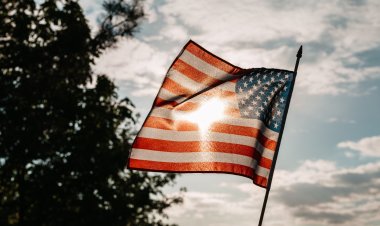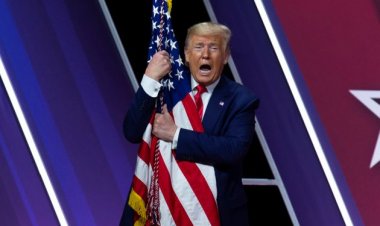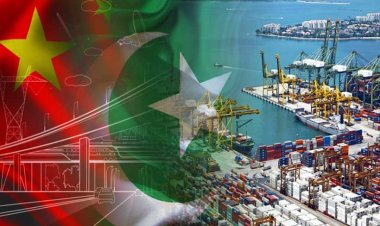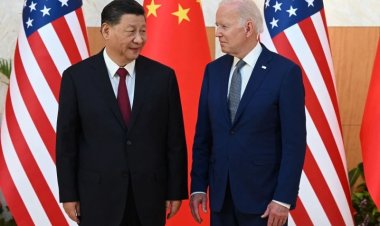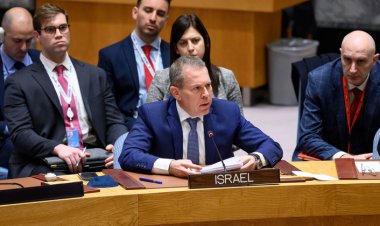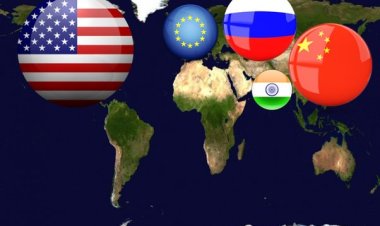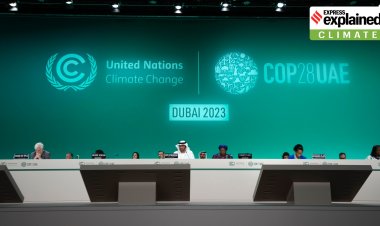The legacy of Henry Kissinger

By Mehak Johari and Preeti Khenta
Henry Kissinger, a German-born academic who helped shape U.S. foreign policy during the Vietnam and Cold Wars, has died at the age of 100. While Kissinger was considered a hero to many war-weary Americans, others blamed him for brutalities committed abroad.
Throughout his 90s, he continued to pursue an ambitious writing career, publishing books on various topics such as history, strategic policy, and his own diplomatic experiences. In 2014, his book "World Order" was released, in which Kissinger shared his perspective on a world that was becoming both more divided and interdependent. In 2022, when Kissinger was in his late 90s, he published "Leadership: Six Studies in World Strategy," in which he profiled the visionaries among post-World War II leaders.
Henry Kissinger, continued to serve as an advisor to the White Houses and congresses even in his nineties. However, in his later years, he expressed his doubts about the effectiveness of his brand of diplomacy in the digital age. The emergence of mobile phones, digital cameras, and social media has made it difficult to maintain the secrecy required for significant diplomatic breakthroughs.
He was concerned that the internet was negatively impacting people's intellect, and that modern society was not conducive to nurturing insightful leaders. In his book published in 2022, he wrote, "Reading a complex book carefully and engaging with it critically has become as countercultural an act as was memorizing an epic poem in the earlier print-based age."
After Hamas launched an attack on Israel last month, Kissinger stated in an interview that Israel must respond with a penalty. He also expressed that a rapid cease-fire is not feasible.When asked about Palestinian supporters celebrating Hamas's attack in Berlin by distributing sweets, Kissinger said that he didn't hold a grudge against the German people, but believed that they had allowed too many foreigners into the country. “It was a grave mistake to let in so many people of totally different culture and religion and concepts, because it creates a pressure group inside each country that does that,” he said.
Kissinger and Cold War: Playing Chess with Mao and Brezhnev
Henry Kissinger paved the way for the normalisation of bilateral relations between the People’s Republic of China and the United States of America during the zenith of the Cold War when most countries were forced to side with either of the two superpowers, the USSR, and the US. He is also credited for his contributions to the policy of détente as a means of arms control and nuclear deterrence. The policy of détente saw the ratification of major disarmament treaties by the two superpowers engaged in an arms race. It aimed at easing the growing tensions between the USSR and the US. Kissinger participated in the Strategic Arms Limitation Talks (SALT) with the Soviet Union and worked to limit the proliferation of nuclear weapons and reduce the threat of a nuclear war between the two superpowers.
One of the many highlights of Kissinger’s political career has been his secret diplomatic visit to Beijing as part of US’ strategic effort to establish dialogue with China (and Mao) in 1971. His clandestine visits eventually culminated in President Richard Nixon’s historic visit to China in 1972, establishing the Shanghai Communique that represented the first ever round of negotiations between the US and the PRC since the latter’s establishment in 1949. Finally, on 1st January 1979, the US formally established diplomatic relations with the People’s Republic of China and recognised it as the sole legitimate government in China. Kissinger’s meeting had long-term implications for regional security dynamics. It legitimized the People’s Republic of China (PRC) as the sole representative of China in international forums and stripped Republic of China (ROC) of its regional stronghold. Kissinger’s visit paved the way for a significant increase in PRC’s global recognition and acceptance. Countries like Japan, Australia, the United Kingdom, and West Germany all established formal diplomatic relations with the PRC following Kissinger’s visit. To many academics and scholars, Henry Kissinger’s visit to China in 1971 had signified the beginning of a new era of bilateral relations between the United States of America and the People’s Republic of China, two countries that have come to occupy the centre stage in world politics today. Kissinger also pursued a strategy of triangular diplomacy where he leveraged US’ relations with China to take advantage of the growing split between China and the USSR and consequently balance USSR’s growing influence.
Other than restoring diplomatic relations with the PRC and the policy of détente, Henry Kissinger has made various important contributions to US foreign policy during the Cold War era. During this period, he was appointed the National Security Advisor and then the Secretary of State under Presidents Richard Nixon and Gerald Ford. Kissinger was an integral part of the Paris Peace Accords that negotiated the withdrawal of US forces from Vietnam soil, established a ceasefire between the two sides and put an end to the brutal Vietnam war. Under Kissinger, the US increasingly engaged in shuttle diplomacy where he travelled to different conflict-ridden regions to mediate a peace process and negotiate ceasefire agreements. The most prominent of these was his involvement in establishing a peace process in the Middle East following the Yom Kippur War in 1973.
Declassified White House documents reveal that Henry Kissinger, former US Secretary of State, supported military coups against democratically elected governments in Chile and Argentina during the 1970s. His fear was that politicians in these countries were getting too close to Moscow. In addition, these documents show that Kissinger tacitly supported the Indonesian military's 1975 invasion of East Timor, a former Portuguese colony in Asia. His concern was that the government of East Timor was tilting towards Communism, which spooked him.
Kissinger’s approach to US’ foreign policy is often described as realpolitik, focusing on pragmatic diplomacy, and prioritizing national interests over ideological considerations.
Advocates for human rights have long maintained that Kissinger ought to have faced war crimes charges for his part in supervising the Nixon administration's covert bombings of Laos and Cambodia at the height of the Vietnam War. Analysts specializing in Southeast Asia estimate that the American military's activities claimed thousands of lives in Cambodia and Laos and unintentionally contributed to the rise of the violent Khmer Rouge organisation in Phnom Penh.
Kissinger and India
During the Cold War era, Henry Kissinger advocated for the idea that Pakistan's military power was essential to safeguard Afghanistan from the Soviet Union. As a result, the United States continued to supply military assistance to Pakistan. The Western nations considered Pakistan to be a strong defense against Soviet communism and a dependable ally of the West, unlike India, which was perceived as less trustworthy in confronting the Soviet Union.
During the Liberation of Bangladesh, Kissinger met Indira Gandhi, the then Prime Minister of India. He carried a letter from President Nixon to PM Gandhi, asking her to help in the peaceful return of the refugees and the maintenance of Pakistan as a united entity. The Prime Minister gave a confrontational response, expressing regret over the fact that the arms provided by the Americans to Pakistan in 1965 to be used against India, were now being used against their own people. These people believed in President Yahaya Khan's promises to reinstate democracy. President Nixon in the letter had requested UN observers to monitor the repatriation of refugees to which the PM responded, “would the League of Nations observers have succeeded in persuading the refugees who fled from Hitler’s tyranny to return even whilst the pogroms against the Jews and political opponents of Nazism continued unabated?” as mentioned in P.N Haksar Papers, Third Instalment.
Recently declassified documents reveal a difference of opinion between President Nixon and his Chief Adviser. Kissinger predicted the creation of an independent Bangladesh and noted that while India could be a world power, Pakistan would remain a regional power.
Much of the world, including China’s president, Xi Jinping, mourned the passing of a global statesman. “Dr Kissinger will always be remembered and missed by the Chinese people,” said Xi. Among the mourners was Antony Blinken, the US secretary of state, who was a guest at Kissinger’s New York 100th birthday party in June.
Disclaimer: This paper is the author's individual scholastic contribution and does not necessarily reflect the organization's viewpoint.
Mehak Johari is currently pursuing her second year of Masters in 'Diplomacy, Law and Business' at the esteemed Jindal School of International Affairs (JSIA) at OP Jindal Global University. She holds a degree in Political Science (Hons) from Mithibai College of Arts, Mumbai University. She is the Centre Coordinator of Centre for Security Studies (CSS), a dynamic student-led research center at JSIA.
Preeti Khenta is a Senior Program Coordinator at Usanas Foundation and a Ph.D. candidate at the Jindal School of International Affairs. She holds a Master's degree in Diplomacy, Law and Business.

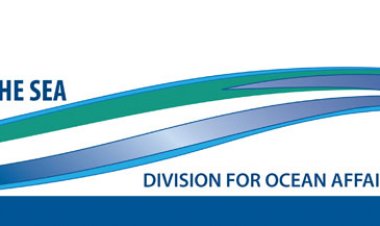
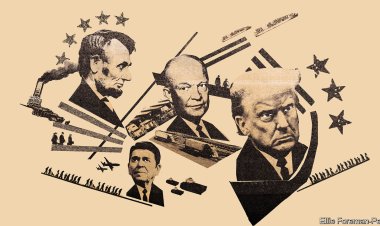
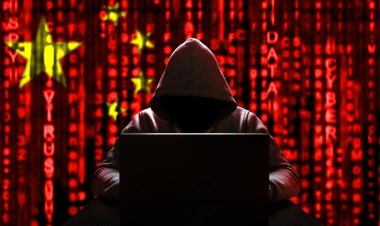

/media/img/mt/2020/06/Atlantic_Biden_foreign_pol_v1/original.png)
